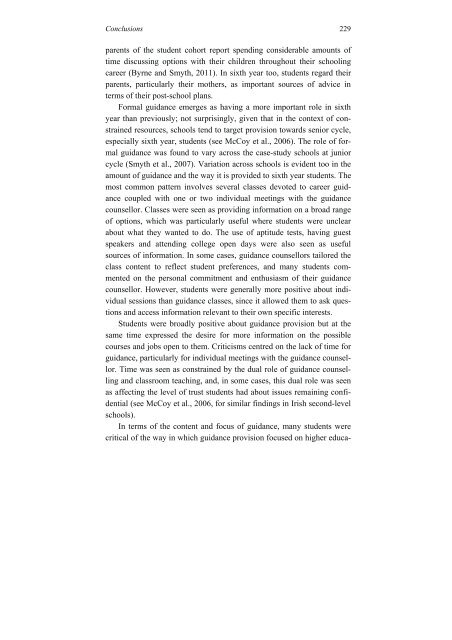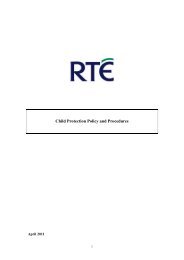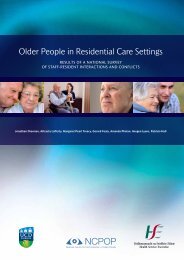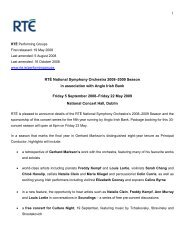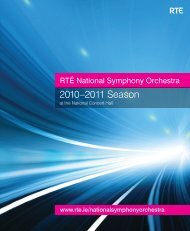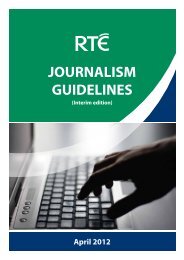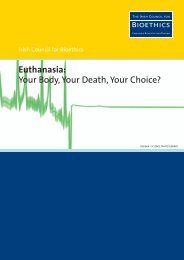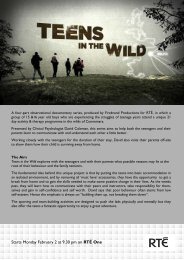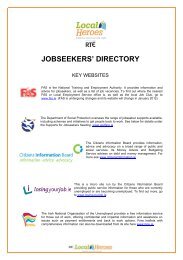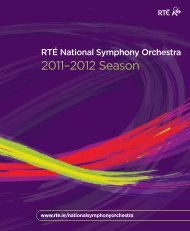From Leaving CertiFiCate to Leaving SChooL a Longitudinal Study ...
From Leaving CertiFiCate to Leaving SChooL a Longitudinal Study ...
From Leaving CertiFiCate to Leaving SChooL a Longitudinal Study ...
Create successful ePaper yourself
Turn your PDF publications into a flip-book with our unique Google optimized e-Paper software.
Conclusions 229<br />
parents of the student cohort report spending considerable amounts of<br />
time discussing options with their children throughout their schooling<br />
career (Byrne and Smyth, 2011). In sixth year <strong>to</strong>o, students regard their<br />
parents, particularly their mothers, as important sources of advice in<br />
terms of their post-school plans.<br />
Formal guidance emerges as having a more important role in sixth<br />
year than previously; not surprisingly, given that in the context of constrained<br />
resources, schools tend <strong>to</strong> target provision <strong>to</strong>wards senior cycle,<br />
especially sixth year, students (see McCoy et al., 2006). The role of formal<br />
guidance was found <strong>to</strong> vary across the case-study schools at junior<br />
cycle (Smyth et al., 2007). Variation across schools is evident <strong>to</strong>o in the<br />
amount of guidance and the way it is provided <strong>to</strong> sixth year students. The<br />
most common pattern involves several classes devoted <strong>to</strong> career guidance<br />
coupled with one or two individual meetings with the guidance<br />
counsellor. Classes were seen as providing information on a broad range<br />
of options, which was particularly useful where students were unclear<br />
about what they wanted <strong>to</strong> do. The use of aptitude tests, having guest<br />
speakers and attending college open days were also seen as useful<br />
sources of information. In some cases, guidance counsellors tailored the<br />
class content <strong>to</strong> reflect student preferences, and many students commented<br />
on the personal commitment and enthusiasm of their guidance<br />
counsellor. However, students were generally more positive about individual<br />
sessions than guidance classes, since it allowed them <strong>to</strong> ask questions<br />
and access information relevant <strong>to</strong> their own specific interests.<br />
Students were broadly positive about guidance provision but at the<br />
same time expressed the desire for more information on the possible<br />
courses and jobs open <strong>to</strong> them. Criticisms centred on the lack of time for<br />
guidance, particularly for individual meetings with the guidance counsellor.<br />
Time was seen as constrained by the dual role of guidance counselling<br />
and classroom teaching, and, in some cases, this dual role was seen<br />
as affecting the level of trust students had about issues remaining confidential<br />
(see McCoy et al., 2006, for similar findings in Irish second-level<br />
schools).<br />
In terms of the content and focus of guidance, many students were<br />
critical of the way in which guidance provision focused on higher educa-


